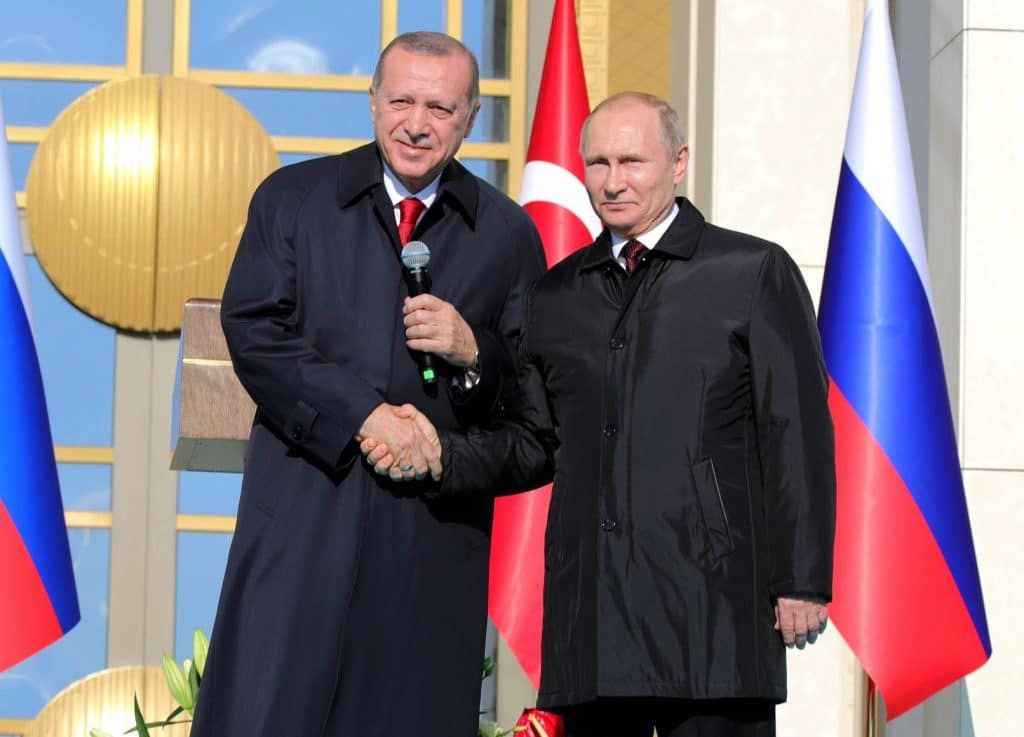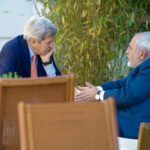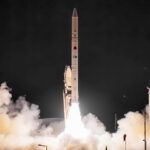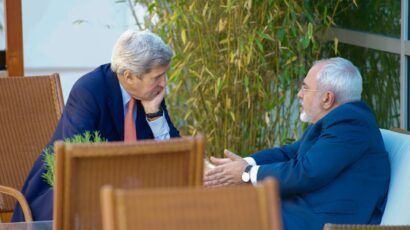Conventional wisdom says Turkey won’t go nuclear. That might be wrong.
By John Spacapan | July 7, 2020
 Recep Tayyip Erdogan and Vladimir Putin at the groundbreaking ceremony for Turkey’s Akkuyu nuclear power plant, 2018. Photo credit: Kremlin.
Recep Tayyip Erdogan and Vladimir Putin at the groundbreaking ceremony for Turkey’s Akkuyu nuclear power plant, 2018. Photo credit: Kremlin.
Ask 10 experts on Turkish politics whether the United States should worry about Ankara’s nuclear weapons ambitions and you’ll likely hear 10 denials. Get beyond the Washington Beltway and you’ll get something different. The Israelis worry Turkish President Recep Tayyip Erdogan is getting all too close to a nuclear-armed Pakistan that likes to share nuclear technology. Turkish environmentalists spotlight that Erdogan’s uneconomic and unnecessary nuclear power program may pose proliferation risks. The Greeks whisper about Erdogan’s nuclear bomb posturing. Any sound US approach to Turkey demands that American officials listen to these foreign voices.
There are popular reasons to think Turkey won’t acquire nuclear weapons. It’s in NATO and already has 50 American B61 nuclear bombs at a joint US–Turkish airbase. It also forswore acquiring its own nuclear weapons, is party to the Treaty on the Non-Proliferation of Nuclear Weapons (NPT), and has ratified the Comprehensive Nuclear Test Ban Treaty. So, what suggests Turkey may want to go nuclear in the not too distant future? Three things.
First, President Erdogan says he wants the bomb. Last fall, he complained before the UN General Assembly that the NPT bars states like Turkey from developing nuclear weapons but ignores that other states have them. Earlier, he told members of his Justice and Development Party that “some countries have missiles with nuclear warheads, not one or two. But [they tell us] we can’t have them. This, I cannot accept.” He then said nuclear weapons are an enormous source of power for Israel.
Second, Erdogan is often bombastic, but on nuclear energy he’s taking action. Along Turkey’s Mediterranean coastline, the Russians are building four large civilian nuclear power reactors at the Akkuyu Nuclear Facility. Erdogan hopes the Russians will complete the first reactor by 2023, in time for the centenary celebrations of the founding of modern Turkey. Ankara says it needs nuclear energy to decrease its dependence on natural gas imports from unreliable partners—Russia and Iran—and to meet electricity demand. This demand has grown at the highest rate of all OECD countries since 2005.
But Ankara’s case for nuclear power doesn’t add up. The Akkuyu facility doesn’t make Turkey less dependent on foreign powers. Russia will own and operate the facility, and it is well-established that Moscow uses all of its energy assets—not just fossil fuels—for coercion.
Actually, the Akkuyu plant is a bad investment. While Rosatom, Russia’s state-owned nuclear energy corporation, is footing the bill for the first reactor, it will not do the same for Akkuyu’s other three reactors. Despite years of searching, the Russians haven’t found a single private investor for the project. To finish Akkuyu, the Turkish government will have to finance it through public debt or secure increasingly scarce foreign investment.
If President Erdogan were paying attention to the market, he would know that natural gas and renewables beat nuclear. Even before the pandemic, Turkey was importing natural gas for a fraction of the Akkuyu plant’s market electricity price—an uneconomic 12.35 cents per kilowatt hour. And Turkish access to gas will soon expand; by backing the interim government in Libya that enjoys UN support, Turkey scored cheap gas and drilling rights in Libya’s maritime zone.
More natural gas will allow Turkey to meet electricity demand today. Cheap domestic renewables should help it tomorrow. As it stands, 10 percent of Turkish electricity comes from solar and wind. One of Turkey’s top universities recently reported that these sources could meet 30 percent of Turkey’s electricity demand by 2026, given proper investment. An objective observer must wonder why bad economics hasn’t dampened Erdogan’s nuclear ambitions.
What’s worrisome is Turkey could exploit nuclear power as a cover to procure bomb-related technology and hardware. The technology transfer is already occurring. Since the Akkuyu project began, Turkish engineering students have become the second largest national group studying nuclear sciences in Russia, where hundreds of Iranian and North Korean scientists came before them. While Russia was building Iran’s civilian power facility at Bushehr, side agreements led to the transfer of equipment and exchange of scientists, which assisted Iran’s weapons program at other sites. These actions fooled US intelligence (who believed Iran had stopped its weapons program between 2003 and 2007) and international inspectors.
Many experts doubt that Turkey would ever go nuclear. They emphasize that Turkey has signed an additional protocol agreement with the International Atomic Energy Agency, opening the country up to closer inspections than Iran had to prevent military diversions of nuclear fuel. The fuel, however, isn’t the only issue. As a major study of Iran and similar cases detailed a decade ago, the agency is disadvantaged in tracking the intangible technology and dual-use transfers that are critical to bomb making.
The third tip off might well be related. Erdogan is collaborating militarily with a nuclear-armed Pakistan, a country nowhere near Turkey’s borders. For decades, Turko-Pakistani relations were warm but superficial. Since 2018, Erdogan has tightened the ties considerably. This year he addressed a joint session of Pakistan’s parliament for a record fourth time, arguing passionately for Pakistan’s position in the Kashmir dispute. Not only has Erdogan suddenly taken a keen interest in Kashmir, but he’s supplying Pakistan’s military with sophisticated weaponry.
Just two years ago, Turkey won its largest defense contract ever—a multibillion-dollar contract to build four large naval vessels for the Pakistani Navy. In addition, a Turkish firm is constructing Pakistan’s largest domestically built warship in Karachi. Turkey also is upgrading Pakistan’s submarines, selling it Turkish-built attack helicopters, and maintaining its F-16s. Overall, only China is a bigger supplier to Pakistan’s military. Erdogan’s current clout in Islamabad exceeds that of North Korea, Iran, and Libya, all of which received nuclear bomb help from Pakistan.
All of this ought to make Washington uneasy. Since nuclear power provides much of the technology for bomb making, and in Turkey’s case makes little economic sense, the United States should be trying to steer Turkey away from nuclear energy. Because Turkey needs foreign investment generally and especially in the energy sector, the US Development Finance Corporation ought to set a standard for regional development banks by incentivizing American companies to pursue Turkish renewables and natural gas related projects, as well as grid management assistance. The Chinese are already doing it; the United States should too.
This will not be enough, though. In addition, the United States and NATO still need to persuade Turkey that its security interests are better served in NATO than out. That’s an even bigger problem, but it will need to be tackled too.
Together, we make the world safer.
The Bulletin elevates expert voices above the noise. But as an independent nonprofit organization, our operations depend on the support of readers like you. Help us continue to deliver quality journalism that holds leaders accountable. Your support of our work at any level is important. In return, we promise our coverage will be understandable, influential, vigilant, solution-oriented, and fair-minded. Together we can make a difference.
Keywords: Nuclear Nonproliferation Treaty, Pakistan, Russia, Turkey, nuclear energy
Topics: Nuclear Risk
















Great article. I can’t resist commenting. No worries it won’t get approved in any case. Nice picture of a couple of mental giants shaking hands. Since all the big kids on the block have the bomb then Turkey has to have one too. Why not. So it can collect rust like ours do. Meanwhile back at the ranch a pandemic lingers in the background. Not building bombs is not an existential threat. An airborne COVID19 is.